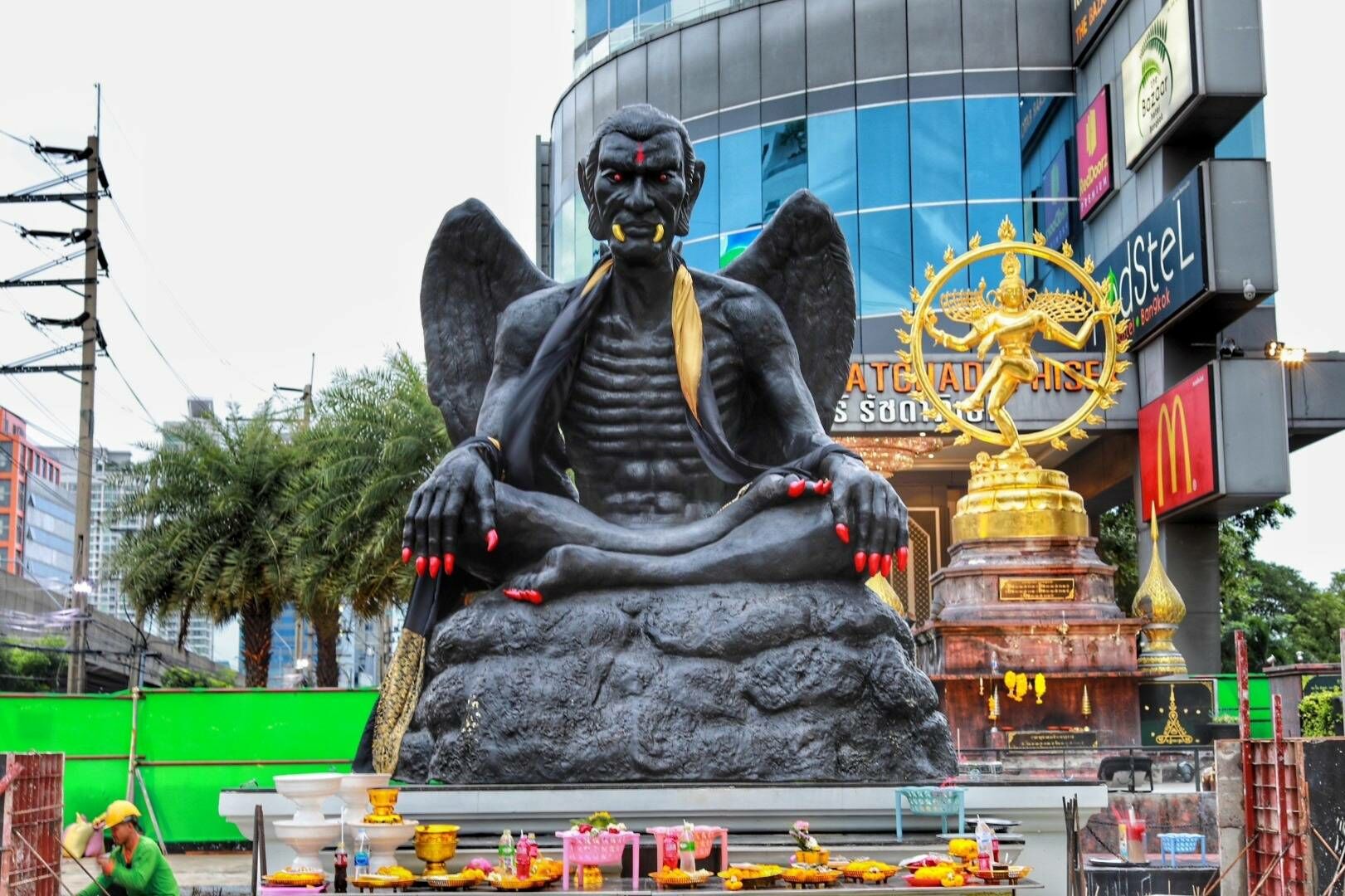Bangkok hotel’s eerie statue to stay despite public outcry, officials seek shield solution

A controversial statue displayed at Bangkok’s Bazaar Hotel on Ratchadaphisek Road stirred a debate within the community, prompting the Bangkok Metropolitan Administration (BMA) to weigh in on the matter. Despite public criticism, the unique sculpture has been permitted to remain at the hotel premises by the BMA.
Chadchart Sittipunt, the Governor of Bangkok, responded to inquiries about any potential legal violations associated with the sculpture. However, to date, no infringements have come to light.
“The sculpture has a rather sinister appearance which is easily seen by everyone passing Ratchadaphisek Road, potentially unsettling pedestrians and travellers. We acknowledge that it might cause discomfort to some, and we’re striving to work out a resolution.”
The sculpture, a 4 metre-tall humanoid figure painted in sombre black with red eyes, yellow teeth, and extended red nails, has garnered significant attention and criticism. Some have linked it to the sanctified teacher of Jayavarman VII, an ancient ruler of the Khmer Empire, but historians debunked this belief as lacking historical accuracy.
Secretary Pimuk Simaroj, from Chadchart’s office, revealed that an agreement had been reached between BMA officials and Bazaar Hotel representatives. The hotel proposed constructing a cover to shield the statue from public view. Governor Chadchart acknowledged the complexity of the situation.
“It’s a tangled issue as we have to be considerate of the conflicting needs of two factions – those distressed by the sight of the statue and the activists who are against its removal.”
As the statue is on privately owned land and doesn’t require a BMA permit due to its size, the decision lies solely with the hotel. The hotel has been asked to design a shield that will render the sculpture invisible to passersby while awaiting approval from the district office. This solution balances the needs of critics and supporters, allowing devotees to continue paying their respects while addressing public concerns.
Chadchart reassured the public that City Hall remains open to addressing grievances from the community. A group of Buddhist representatives raised concerns about the statue, urging the hotel to remove it due to its unsettling appearance. They argued that unexplained worship of such figures could harm the religion’s integrity, particularly among younger generations.
Dr Supachai Pongsawas, president of the Department of Religious Affairs’ Moral Promotion Unit, emphasized that worship should be supported by evidence and rationale in Buddhism. He warned that unexplained worship could negatively impact the religion.
Meanwhile, Weerayanant Aphithanaphat, a member of the artist council, highlighted that the majority of Buddhists are unaware of the statue’s history and significance. Social media criticism likened the statue to infernal deities, which contradicts Buddhist beliefs.
The hotel’s executive president, Charlie Nopwang Na Ayutthaya, admitted to overlooking potential religious implications when installing the statue to attract tourists. He hinted at a resolution involving covering the statue and limiting its worship, aiming to transform it into a landmark.
Latest Thailand News
Follow The Thaiger on Google News:


























